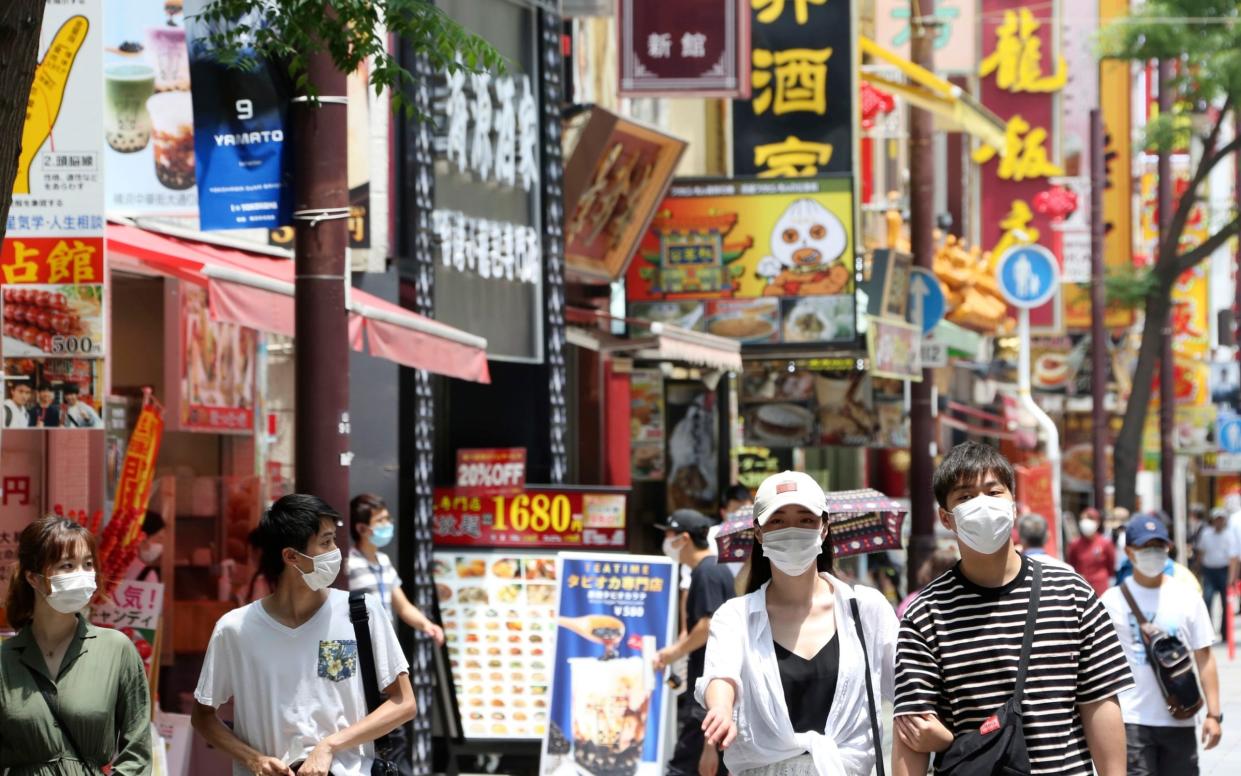Japanese study attempts to determine if race plays part in coronavirus death rate

Scientists in Japan have launched a study to determine whether race plays a part in the onset of severe symptoms of coronavirus and death rates.
Experts from seven leading universities will conduct genome analyses of Japanese people who have contracted the virus, sampling individuals who only displayed minor symptoms, those who were seriously ill and people who died.
The scientists intend to compare their findings with similar research being conducted in other countries and will attempt to isolate factors that are common in people who developed severe symptoms and those who died.
There have been 16,867 cases of coronavirus in Japan, a nation of 126.5 million people, and more than 900 deaths. Similarly, South Korea, with a population of more than 51 million, has reported 11,629 cases and 273 deaths.
In contrast, the UK has had 279,856 cases and 39,728 deaths in a population of 66.65 million, while the US, with a population of 328 million, has seen more than 1.8 million cases and 107,175 fatalities.
The scientists believe that Japan’s relatively low mortality rate - six per million people - cannot simply be explained away by diet or other lifestyle factors or differences in health care systems, the Asahi newspaper reported.
The assumption, therefore, is that immune responses may vary according to differences in genes between racial groups. It may be that people with Asiatic genes are less susceptible to the virus than Caucasians or other racial groups, or better at fending it off if they do become infected.
The Japanese study's launch comes after a Public Health England report found that people from black and Asian ethnic groups are up to twice as likely to die with Covid-19 than those from white British backgrounds.
Researchers found that people of Bangladeshi ethnicity had around twice the risk of death than people of white British ethnicity, while people of Chinese, Indian, Pakistani, other Asian, Caribbean and black ethnicity had between 10 per cent and 50 per cent higher risk of death.
If the factors that cause severe symptoms can be identified, it may help in the development of a vaccine.
The scientists will focus much of their research on human leukocyte antigens, which play an important role in immune reactions but may respond differently to coronavirus in people with a contrasting genetic makeup.
Tasuku Honjo, a professor of immunology at Kyoto University and winner of the 2018 Nobel Prize for medicine, late last month proposed research into genetic differences in the search for a cure for the illness.
There were “several theories” as to why Japan’s infection and death rates from the virus were relatively low, he said.
“One is that people in this country like to be clean, they wash their hands frequently and they do not kiss and hug,” he said. Other suggestions were that the widespread BCG vaccination boosted Japanese people’s immunity, while it was also possible that the genes of Asian people were “more resistant” to the virus than Caucasians, he said.

